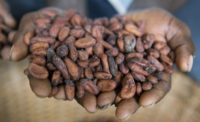GNT, supplier of EXBERRY Coloring Foods, has published a report that sets out its plans to become a leader in its field on sustainability.
Each year, GNT produces more than 11,500 metric tons of EXBERRY concentrates from edible fruit, vegetables, and plants – enough to color more than 40 billion servings of food and drink.
To ensure the company is fit for the future, GNT has unveiled a sustainability roadmap for 2030 to optimize its environmental and social impacts across its global operations. The full plans are featured in GNT’s “Sustainability Report 2021,” which also includes information on its performance last year.
“Since GNT was founded in 1978, we’ve been revolutionizing the food coloring industry with our plant-based EXBERRY solutions,” said Frederik Hoeck, managing director at GNT Group B.V. “Today, we’re known for offering the most natural solutions on the market. We now want to take this to the next level and lead the industry in sustainability too. As a family business, sustainability and caring for future generations have always been part of our DNA.”
GNT’s sustainability strategy is built around four key pillars: better products, better operations, better agriculture, and better for people. It features a total of 17 targets for 2030, including cutting the product environmental footprint for EXBERRY product ranges by 25 percent and reducing the intensity of factories’ CO2-equivalent emissions by at least 50 percent.
Furthermore, due to GNT’s vertical integration, the company will soon be in a position to report on greenhouse gas emissions for 80 percent of EXBERRY products. Covering scopes 1, 2 and 3, this data will provide advantages for food and beverage brands as it will enable them to calculate final products’ total environmental footprint.
“We’re positioning our EXBERRY brand as the most sustainable food coloring solution on the market,” said Rutger de Kort, sustainability manager at GNT Group B.V. “GNT is committed to driving industry standards higher than ever before by providing colors that deliver on cost-in-use, performance, naturalness, and sustainability. Achieving our goals won’t be easy, but we’re already making excellent progress across multiple areas.”






